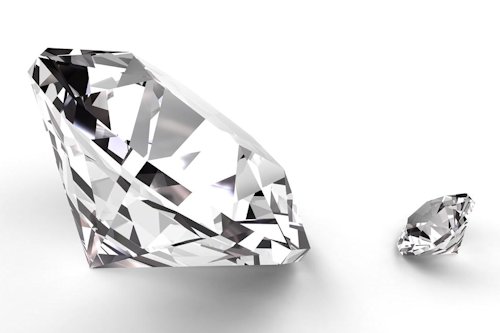
|
Gems, Precious Stones, Precious Metals - Diamond Diamond - Gem Color 5 - #B9F2FF
In mineralogy, diamond (from the ancient Greek adámas "unbreakable")
is a metastable allotrope of carbon, where the carbon atoms are arranged in a
variation of the face-centered cubic crystal structure called a diamond
lattice. Diamond is less stable than graphite, but the conversion rate from
diamond to graphite is negligible at ambient conditions. Diamond is renowned as
a material with superlative physical qualities, most of which originate from
the strong covalent bonding between its atoms. In particular, diamond has the
highest hardness and thermal conductivity of any bulk material. Those
properties determine the major industrial application of diamond in cutting and
polishing tools and the scientific applications in diamond knives and diamond
anvil cells.
|
| Shown are two diamond gemstones | |
| ⇦ Back to Gem Color 4 - Citrine Back to Gem Color Group 1 On to Gem Color 6 - Emerald ⇨ | |